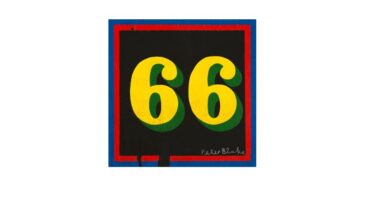Niki recently interviewed first time writer/director Francisco Varone, who’s new film Camino a La Paz (Road to La Paz) is screening at the Argentine Film Festival in London on Thursday 26th and Friday 27th November. Read below for his chat with Gigslutz.
What’s the film about?
Sebastian (35) recently married to Jazmín and in need of money, begins to work as a car-service chauffeur. Among his passengers is Jalil, an elderly Muslim who one morning makes a curious proposal: he will pay Sebastian a healthy sum to drive him from Buenos Aires to La Paz, Bolivia. Reluctantly and full of doubt, Sebastian agrees to take the trip, which the old man has planned in detail. The two men are constantly at odds during the trip. Sebastian gets irritated by Jalil’s eating in the car, his taste for Arab music and his requests for prayer stops. Although they are so different, something stronger conquers the two men’s mutual resistance to each other, causing them to bond and become close road companions. Almost nothing goes as planned. Nevertheless, the trip that began as an annoyance for Sebastian becomes a mission, a kind of exodus from himself. Road to La Paz is a coming of age film for latecomers, an endearing encounter between distant cultures, and an odyssey of spiritual initiation.
The English translation of La Paz is peace (as well as being the capital of Bolivia) – are the characters seeking peace and redemption from their road trip?
Every person has their own thing that they are looking for. Sebastian, unconsciously, more than peace, is looking to find out who he is and what he wants from life. What he is looking for without knowing it is the possibility to grow and mature as a man. Jalil is a very elderly man. Having been distanced from his brother for many years, he finds the perfect excuse to meet him again and leave the past behind. At his age to attempt the pilgrimage to Mecca is a real act of faith and humility, and also one of redemption.
The two protagonists are from different religious backgrounds: Christian and Muslim – was there a particular reason for this choice? Are you hoping to show that people from often-conflicting religions can in fact have much in common than they might think?
In Argentina there are many Christians, Jews and also agnostics – which I what I think Sebastian is, people who are not that interested in religion. I decided that the character of Jalil would be Muslim because I had the luck to meet an Islamic community in Argentina and discovered a world that was very interesting and unknown to me and many Latin Americans. Although it wasn’t my original intention, I think the film talks about tolerance and respect for one another.
This is your debut film as writer and director – what was the inspiration for the story? How did it come about?
The original idea came out of different personal experiences. The first was in 2001, when after the huge economic crisis in Argentina both I, and many of my friends, were left without work. One of them, who had a car, starting taking people from one place to another as if he were a taxi driver. This situation struck me and became the seed of the original script. A few years later, I ran into another friend, who had recently converted to Islam. He invited me to get to know his community and have dinner with them and take part in a ritual known as dhikr, which is very intimate and intense. To take part in that experience inspired me to write about it. In Argentina we do not know much about Islam and I thought making it a part of my script would be very interesting.
Rodrigo De la Serna has been in many films before this but for Ernesto Suarez, this is his film debut after being a well-established theatre actor – did you notice a different in their acting styles? Did you have to vary your directing styles to fit with the actor’s expectations?
Absolutely. Rodrigo has a lot of experience in film and TV. With him, our conversations focused on explaining to him what I wanted from the scene, and rehearsing the dialogues. With Ernesto I had to be a bit more precise and also explain where the camera would be and how I would edit the scene afterwards so that little by little he would understand the mechanics of film. In any case Rodrigo and Ernesto got along very well, and as they are both fantastic actors I never had any problems. Generally we didn’t rehearse much and trusted in the spontaneity of what could happen on set.
What are you working on next?
I work as a scriptwriter so at the moment I am writing scripts for other Argentine directors. Next year I’d like to sit down and work on my next project, a film about a Japanese Yakuza assassin who travels to Brazil on a special mission.
ROAD TO LA PAZ – Trailer ENG from Doha Film Institute on Vimeo.
To get tickets to see Road to La Paz + Q&A at either the Hackney Picturehouse or Brixton Ritzy click here
For more information on the Argentine Film Festival go here.
Niki Alexandrou















